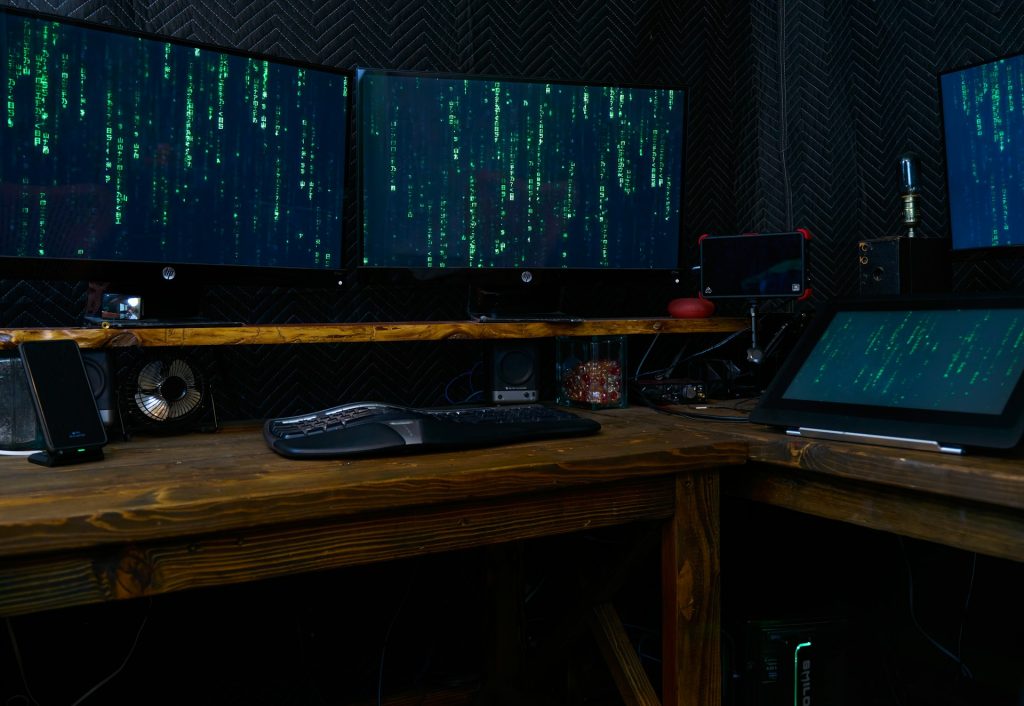In an era where technology seems to blur the lines between reality and fiction, the notion of living in a computer simulation has intrigued philosophers, scientists, and curious minds alike. With advancements in artificial intelligence, virtual reality, and simulations, the question gains traction: How do we know that our reality isn’t just an elaborate construct within a computer program?
The Simulation Hypothesis:
The concept of living in a computer simulation stems from what is known as the Simulation Hypothesis, proposed by philosopher Nick Bostrom in 2003. Bostrom posited that one of three possibilities exists: either all civilizations become extinct before developing the technology to create realistic simulations, they choose not to run simulations, or we are most likely living in a computer simulation. This hypothesis sparked widespread discussion and debate among scientists, philosophers, and technologists.
Simulation Evidence:
While the Simulation Hypothesis remains speculative, some arguments and observations have been put forth to challenge or support the idea:
Computational Limits: One argument against the Simulation Hypothesis suggests that creating a simulation complex enough to replicate our reality would require computational power far beyond current capabilities. The sheer scale and intricacy of the universe, from quantum mechanics to the vast cosmos, present challenges in simulating every detail accurately.
Observational Constraints: Proponents of the Simulation Hypothesis argue that certain anomalies or limits within our universe could be indicative of a simulated reality. For instance, physicists have proposed that limitations in the precision of physical quantities at the smallest scales, such as Planck length and time, could be evidence of a discretized simulation.
Simulation Artifacts: Some researchers suggest that if we were living in a computer simulation, there might be glitches or artifacts within the simulation that could potentially be detected. These could manifest as inconsistencies in physical laws or unexpected patterns in cosmic phenomena.
Consciousness and Experience: Another aspect of the debate revolves around the nature of consciousness and subjective experience. If our reality is a simulation, what does it mean for our conscious awareness? Can a simulated consciousness be indistinguishable from an organic one?
Philosophical Implications:
The question of whether we’re living in a computer simulation delves into profound philosophical territory. It challenges our understanding of reality, consciousness, and the nature of existence itself. If our reality is simulated, does it diminish the significance of our experiences and relationships? Or does it open up new avenues of exploration and understanding about the nature of reality?
The question of whether we’re living in a computer simulation remains one of the most intriguing and debated topics of our time. While evidence both for and against the Simulation Hypothesis exists, conclusive proof remains elusive. Whether we’re simulated beings in a digital construct or inhabitants of a tangible universe, the quest to understand our reality continues to drive scientific inquiry, philosophical discourse, and the human imagination. Perhaps, in our pursuit of truth, we may uncover insights that transcend the boundaries of simulation and reality, illuminating the mysteries of existence itself.
Further exploration into the question of whether we are living in a computer simulation raises fascinating avenues of inquiry and contemplation. Here are some additional considerations:
Ethical and Moral Dilemmas: If we were to discover unequivocal evidence that we are living in a simulated reality, it would raise profound ethical and moral questions. How should we treat the beings or entities responsible for our simulation? Should we seek to communicate with them, or would such endeavors be futile or potentially dangerous? Moreover, if our reality is simulated, does it absolve us of moral responsibility for our actions, or do ethical principles still apply within the confines of the simulation?
Existential Angst: The realization that our reality may be a simulation could induce existential angst and philosophical disquietude. Questions about the purpose of our existence, the nature of free will, and the ultimate meaning of life take on new dimensions when viewed through the lens of simulation theory. Moreover, grappling with the possibility that our perceptions and experiences might be illusory challenges fundamental assumptions about our identity and place in the universe.
Technological Implications: Contemplating the prospect of living in a computer simulation motivates technological innovation and exploration. If our reality is indeed simulated, understanding the underlying principles of the simulation could empower us to manipulate or transcend its confines. This could lead to advancements in fields such as artificial intelligence, virtual reality, and quantum computing, as we seek to unlock the secrets of our simulated existence and potentially harness them for our benefit.
The Search for Evidence: As scientists and researchers continue to probe the mysteries of the cosmos, the search for evidence of a simulated reality persists. From conducting experiments to detect potential simulation artifacts to developing theoretical frameworks that reconcile quantum mechanics with general relativity within a simulated context, efforts to uncover clues about the nature of our reality are ongoing. While definitive proof remains elusive, each new discovery brings us closer to unraveling the enigma of whether we are living in a computer simulation.
In conclusion, the question of whether we are living in a computer simulation transcends traditional boundaries of science, philosophy, and metaphysics. It challenges us to reconsider our fundamental assumptions about reality, consciousness, and existence, inviting us to explore the profound implications of simulation theory for our understanding of the universe and ourselves. Whether we ultimately discover that our reality is simulated or not, the journey of inquiry and discovery promises to expand our horizons and deepen our appreciation for the mysteries that surround us.







